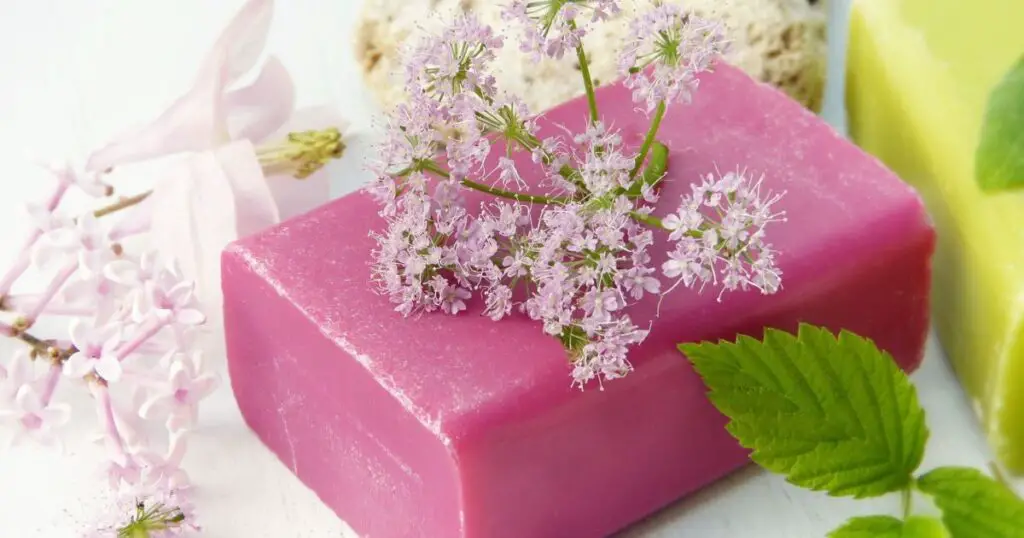As an Amazon affiliate, I may earn from qualifying purchases. Please read our Disclaimer and Privacy Policy.
Before you get started with your homemade soap side hustle, it’s important to understand the selling handmade soap regulations.
You can make as many different soaps as you want for your own use.
However, when it comes to selling handmade soap at markets, online, or through other channels, there could be legal implications if certain regulations aren’t followed.
The last thing you want to do is work your behind off only to discover that you’re not in complicant with applicable laws!
Don’t take the risk. Instead, read this post and learn everything you need to know about selling handmade soap regulations.
Keep reading for insights into what the Federal Food, Drug, and Cosmetic Act (FD&C Act) has to say.
I’ll also take you through some inmportant cosmetic regulations along with other rules that impact small businesses selling natural soaps.
Disclaimer:
The information provided in this blog post is for general informational purposes only and is not a substitute for thorough research or legal advice.
It is important to conduct your own due diligence and consult with federal, state, or provincial regulatory bodies to ensure full compliance with all applicable laws and regulations. Always verify the specific requirements for your business in your area.
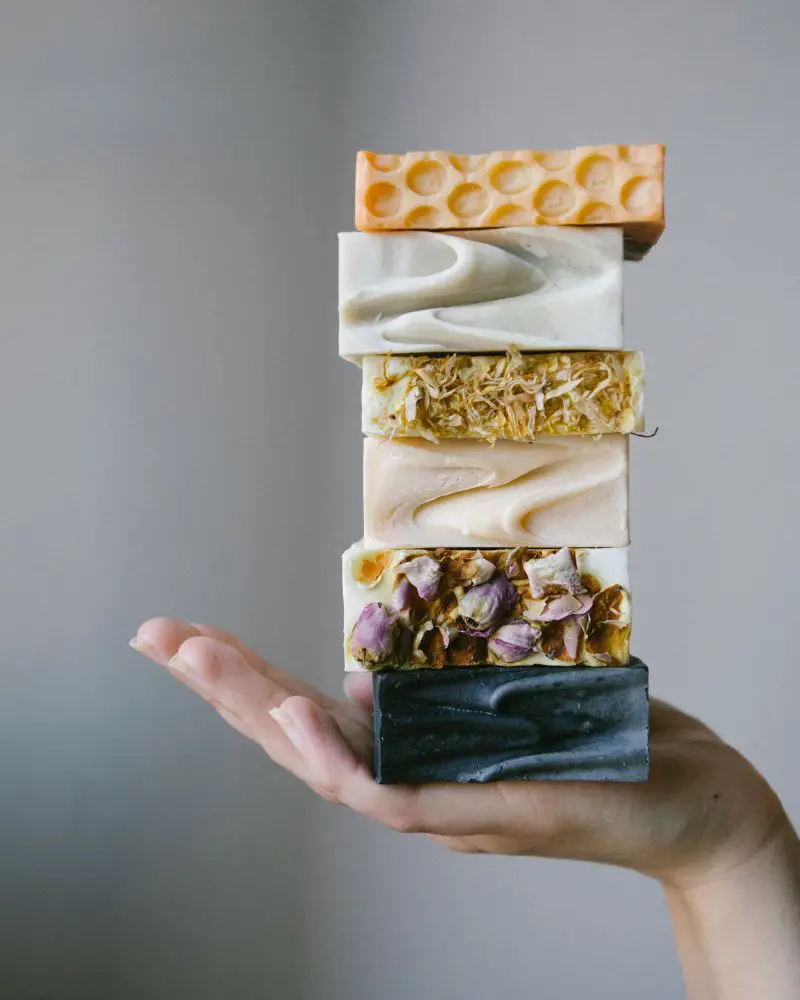
Understanding the Handmade Soap Industry
People are becoming more aware of the negative effects of synthetic chemicals, parabens, sulfates, and artificial fragrances found in soaps and other personal care products.
As a result, people demand natural, eco-friendly and non-toxic alternatives.
When customers shop, they’re often looking for products made from organic or sustainbly sourced ingredients. I believe that’s one of many reasons people choose to shop at local markets.
There’s a belief that homemade products crafted by skilled artisans will provide customers the assurances they need.
Consumers want more information
Many consumers are looking for products made from organic or sustainably sourced ingredients.
They want to know where the ingredients come from, how they’re processed, and whether they’re safe for both their health and the environment.
Do you offer transparency about your products?
Consumers feel good about purchasing products that offer transparency and traceability.
If you’re an artisan soap maker, your list of ingredients should clearly indicate where they were sourced.
Note the benefits of each component and the ethical practices behind your products.
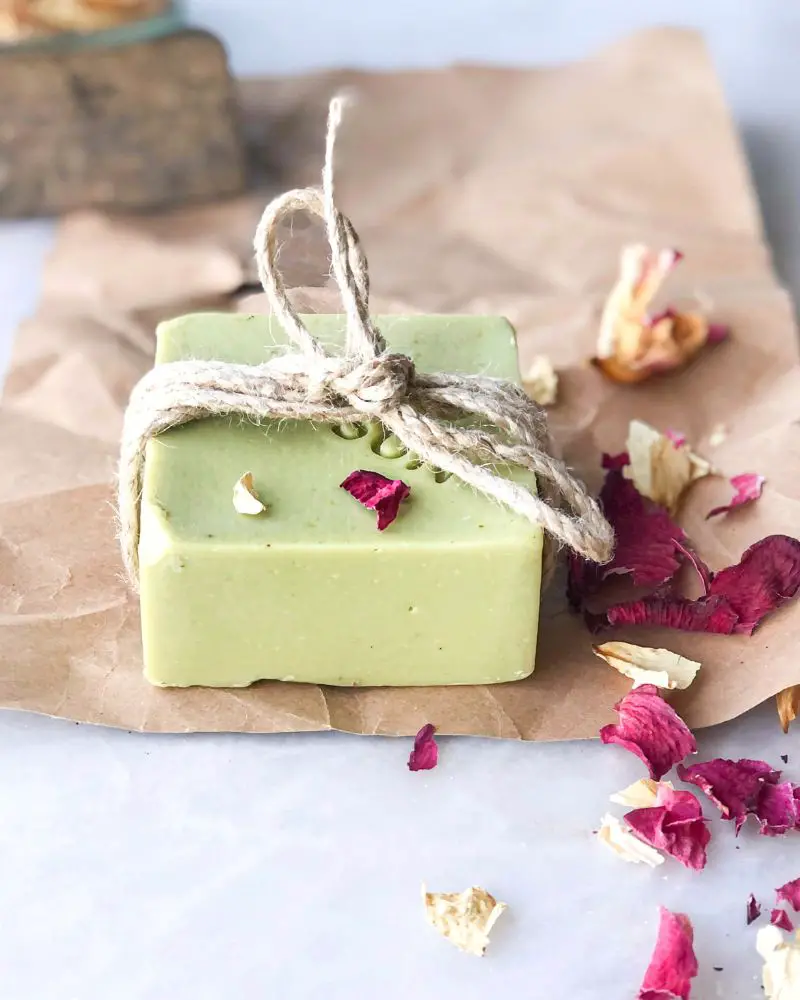
Defining “Soap” in Legal Terms
We all know what soap is, right? There’s body soap, facial cleansing soap, and soap to clean clothes.
Of course, what we’re talking about here are artisan soaps that may be created using essential oils, colors, and fragrances.
Handmade Artisan Soap
Handmade soaps are usually crafted with natural oils, butters, and lye (sodium hydroxide). Other common ingredients might include:
- olive oil
- coconut oil
- shea butter
- essential oils
They’re typically free from synthetic detergents, harsh chemicals, and artificial preservatives.
Sometimes, handmade soap is enriched with natural additives like clays, herbs, or botanicals for color, scent, or skin benefits.
Commercial Soap
Commercial soap is usually made with synthetic detergents and surfactants like sodium lauryl sulfate (SLS). These ingredients enable them to be used as stronger cleaners.
In addition, commercial soap contains preservatives, artificial fragrances, and stabiizers to extend shelf life. This also helps to lower production costs.
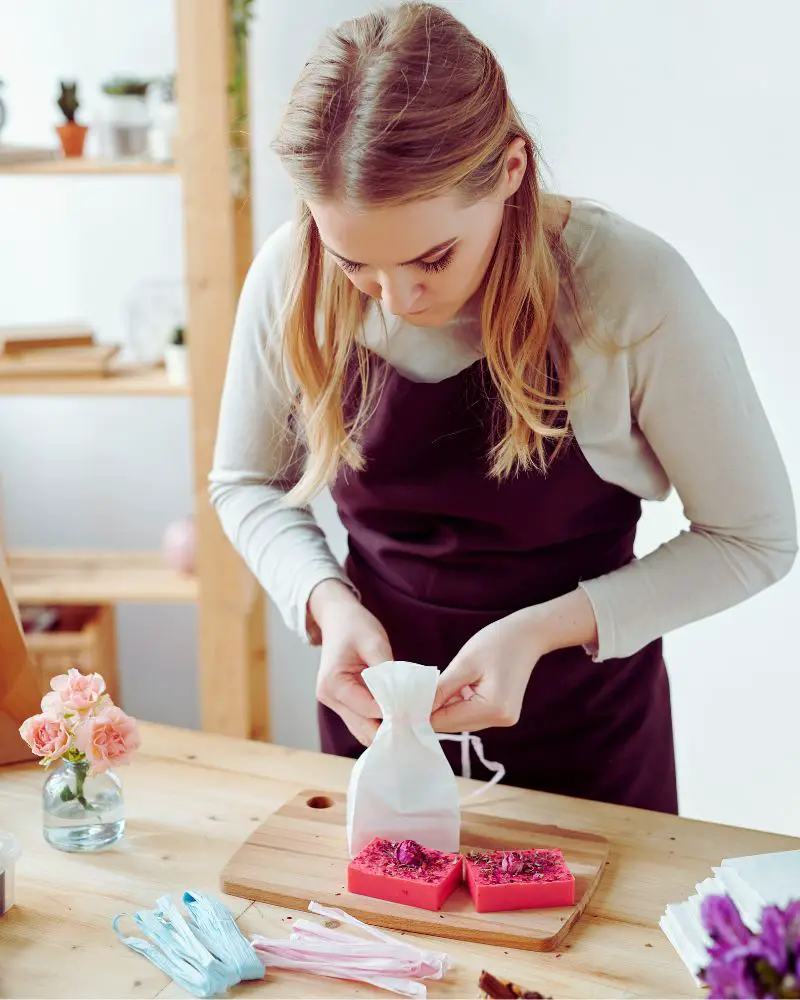
The Challenges of Selling Handmade Soap
There is a growing demand for natural and artisan products.
According to the Nutrition Business Journal, consumer sales of natural and organic products have tripled since 2007, reaching over $300 billion in 2023.
The reason for this is fueled by younger generations (Gen Z, for example) demanding sustainability and transparency in the products they buy.
The challenges of selling handmade soap regulations include:
- Following regulatory compliance
- Quality control
- Marketing and branding
- Packaging and Labeling
- Product liabiity
- Storage and shelf life
- Sales and distribution
- Costs and pricing
This list may seem discouraging, but there’s good news! Starting a handmade soap business can be relatively inexpensive.
With a growing demand for natural products you can target specific niches such as vegan, organic, or luxury soaps.
You can easily branch out your farmers’ market business to include platforms like Etsy, Shopify, and social media to reach a global audience.
I’m Only Selling My Soaps At a Local Farmers’ Market. Do The Regulations Apply to Me?
Selling handmade soap regulations in the United States vary depending on the scale and distribution method.
For example, selling at local craft shops or farmers’ markets involve different regulatory requirements than selling through large retail channels.
So, the answer to this question is yes, you must comply with federal, state, or local regulations.
What are the risks if I don’t comply?
It’s important to understand selling handmade soap regulations to avoid the risk of legal penalities.
Legal penalities can impact your business legally, financially, and reputationally.
Looking for other side hustles ideas?
Soap making is just one of several ways to earn extra money on the side. If you’re looking for more ways to earn an income, read: 49-awesome-gigs-and-side-hustles-over-50.
You might also be interested in reading: 9 Success Tips on How to Become a Life Coach Over 50.
Selling Handmade Soap Regulations – Legal Penalities of Non Compliance
The world might call you an artisan, but in your mind you might just be someone trying to earn a little extra money with a side hustle.
Many people sell handmade soap at small markets or tourist kiosks, for example,
The hard truth is that you still need to comply with regulations like the ones set out by the U.S. Food and Drug Administration (FDA), or local health departments.
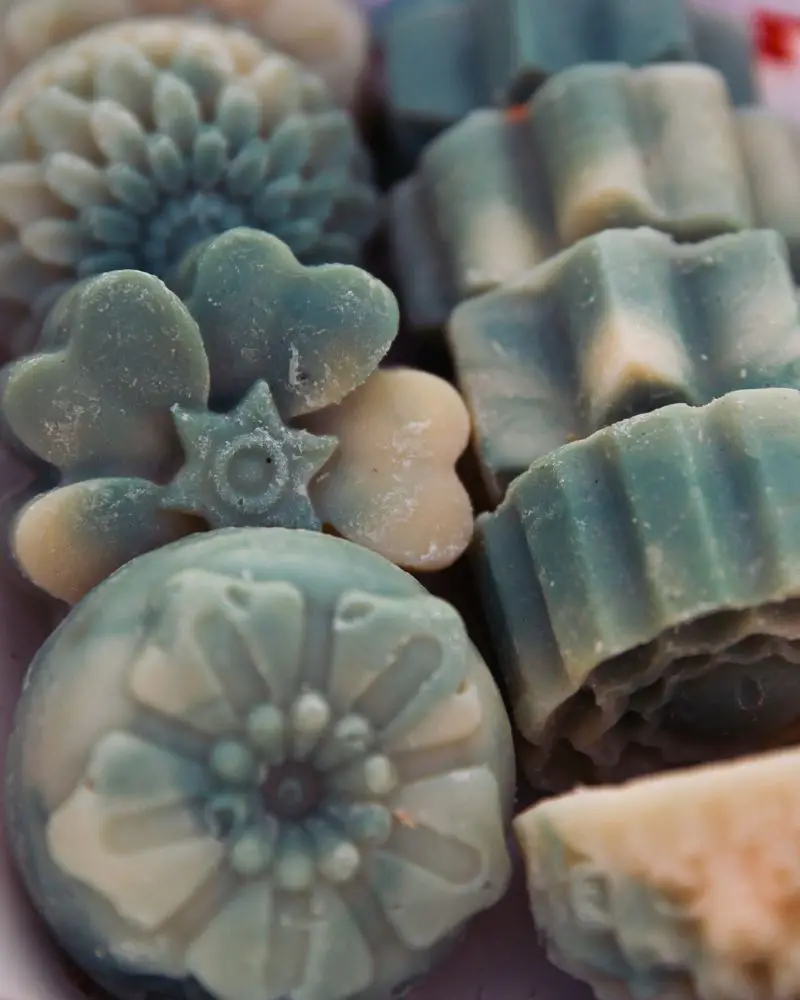
The Consequences of Non-Compliance
If you’re starting to worry that you might not be in compliance, keep reading.
I’ve included everything you need to know about selling handmade soap regulations in an easy-to-understand format that’s mostly free of jargon.
You’ll find the information further down in the post.
For now, let me give you an idea of what could happen is you don’t follow selling handmade soap regulations.
Fines and Penalities
Non-compliance with labeling, manufacturing, or ingredient safety laws may result in monetary fines, which can vary by state and the severity of the infraction.
Product Seizures
The FDA has the authority to seize products deemed misbranded or adulterated under the Federal Food, Drug, and Cosmetic Act (FD&C Act).
Injunctions or Shutdowns
Repeated or serious violations can lead to court injunctions, halting production or sales entirely until compliance is met
Negligence Claims
A lack of clear labeling, such as leaving out the potential for an allergic reaction could be interpreted as negligence.
Compensatory and Punitive Damages
A court may require artisans to pay for medical expenses, lost wages, or emotional distress if the product caused harm.
Negative Reviews and Media Attention
News of regulatory violations can spread quickly, particularly on social media, deterring potential customers.
Loss of Market Access
Retailers or marketplaces, such as Etsy or Amazon, may remove listings that don’t meet compliance standards.
FDA or Local Inspections
Failing an inspection can lead to additional compliance costs, such as updating facilities or processes.
Increased Costs
Businesses might need to hire consultants, conduct additional product testing, or redesign packaging to meet standards.
Environmental Fines
Local environmental agencies may impose penalties for unsafe waste disposal or pollution.
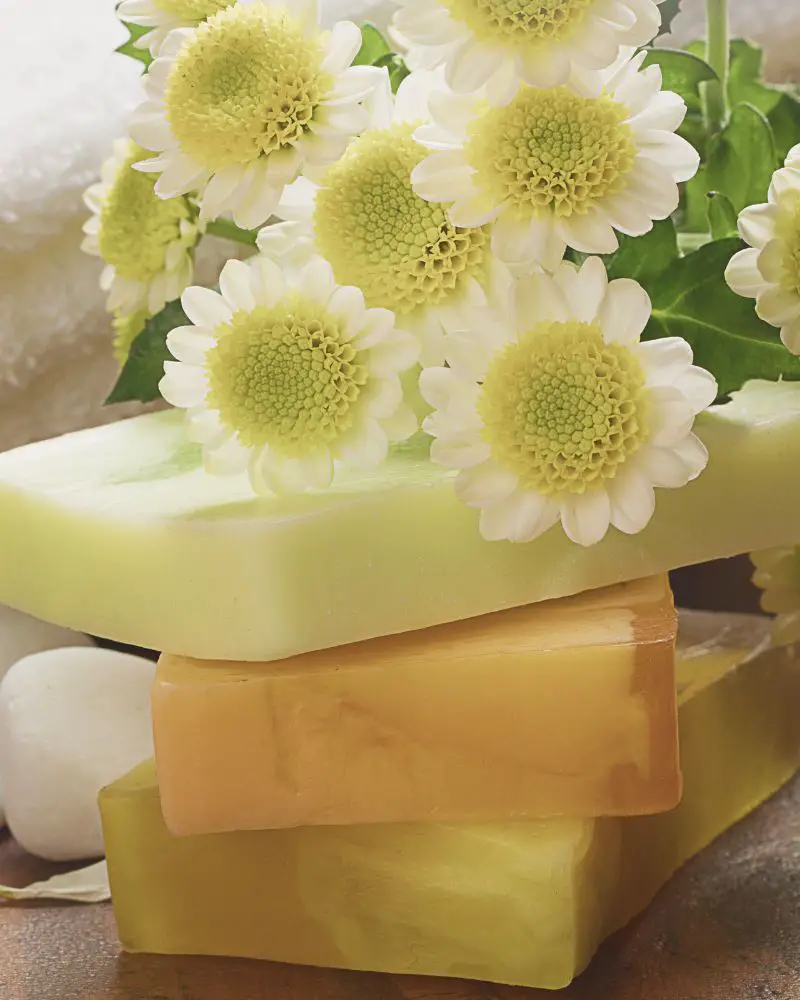
Don’t Make The Same Mistakes These Artisans Did
According to Modern Soap Making and the National Law Review, there have been cases where soap and cosmetic artisans faced penalities for not following regulations.
Examples of this include:
- Marketing products that classify them as drugs rather than cosmetics. For example, claiming a soap “treats eczema” where there is no evidence to support the claim.
- Failure to report adverse effects associated with the product.
- Products sold at local markets that lack an ingredient list or fail to meet basic safety stands.
Come on! What are the chances of being fined?
Selling handmade soap regulations are an important part of doing business. It shows that you and/or your company can be trusted.
In reality, the likelihood of being fined for not following regulations when selling small volumes of handmade soaps (especially in small-town markets) could be considered low.
Am I suggesting you risk it? Absolutely not!
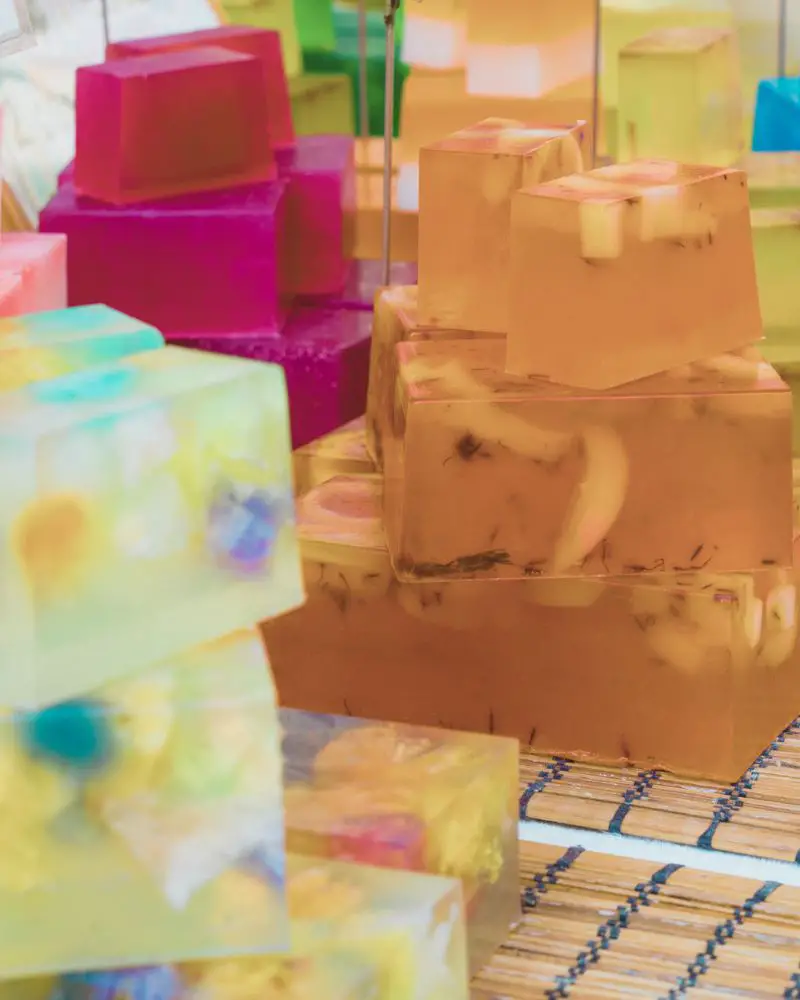
5 Selling Handmade Soap Regulations You Must Know
It may seem like one more thing to do in the long list of marketing artisan soaps to your local community.
The good news is that because artisan soaps are usually free from additives, chemicals, and synthetic detergents, there are fewer ingredients to include on your label.
I’ve listed 5 important regulations to follow below. However, you should grab the comprehensive list from the FDA: Frequently Asked Questions on Soap.
The following are the 5 selling handmade soap regulations you should know.
1. Labeling Requirements
When labeling artisan soaps, you must meet both legal requirements and consumer expectations.
Labels must include the street address or P.O. box of your business.
You should also include contact information such as an email or phone number. This is so that customers can reach out with specific questions about the product.
The ingredient list should use the Latin name or International Nomenclature Cosmetic Ingredient (INCI) names.
This is because these are the industry standard for botanical ingredients.
Clear and accurate labeling is both a regulatory requirement and a key to building trust with your customers.
2. Claims and Marketing Language
When selling handmade soap, it’s important not to make medical claims unless your soap is officially registered as a drug.
Phrases like “chemical-free” or “cures eczema” could get you into trouble with the Federal Trade Commission (FTC) and local regulators.
Instead, focus on natural ingredients and how they benefit the skin.
You can highlight that your soap contains ingredients like olive oil, shea butter, or essential oils, but avoid promising that your soap will heal or treat specific skin conditions.
Use phrases like “moisturizing” or “gentle on skin” to describe the benefits without making unverified health claims.
It’s best to use terms that describe the quality of your ingredients.
For example, saying “crafted with natural oils” or “handmade with plant-based ingredients” is both accurate and appealing to customers who prefer more natural product
3. Ingredient Safety and Restrictions
To make sure your handmade soap complies with safety regulations, it’s important to conduct a safety assessment to ensure your products meet guidelines for the Safety of Cosmetic Products.
Here are a few things to keep in mind:
Essential Oils
Essential oils are a popular ingredient in artisan soaps, but they need to be used with care. Essential oils can cause allergic reactions in some people.
It’s important to test for safe usage levels to ensure the oils are safe for a wide range of skin types.
Always consider possible skin sensitivities and adjust your formulas accordingly to avoid irritation.
Color Additives
When using color additives in your soaps, be aware that there are specific limits on which colors can be used.
Some colorants are restricted or not approved for use in cosmetics in certain countries.
Be sure to check the list of approved colorants for your specific market, especially if you plan to sell your soaps in different regions.
This article will explain how to read the color table with a link to take you to the information you require. Read: Reading the FDA Color Tables.
Selling to European or Canadian Markets
If you plan to sell your soap in Europe or follow Health Canada’s natural health product guidelines, you’ll need to comply with stricter rules.
Some ingredients that are permitted in the U.S. may be restricted or banned in these regions.
Additionally, both Europe and Canada have specific labeling requirements that must be met to ensure the safety of your soap products.
These include ingredient listings, warnings, and claims that can be made.
Always verify that your product complies with local regulations to avoid legal issues.
It’s important to understand the selling handmade soap regulations before jumping into your side-hustle.
You can make as many different soaps as you want for your own use.
However, when it comes to selling handmade soap at markets, online, or through other channels, there could be legal implications if certain regulations aren’t followed.
The last thing you want to do is work your behind off only to discover that you’re not in complicant with applicable laws!
Understanding the Handmade Soap Industry
People are becoming more aware of the negative effects of synthetic chemicals, parabens, sulfates, and artificial fragrances found in soaps and other personal care products.
As a result, people demand natural, eco-friendly and non-toxic alternatives.
When customers shop, they’re often looking for products made from organic or sustainbly sourced ingredients.
I believe that’s one of many reasons people choose to shop at local markets.
There’s a belief that homemade products crafted by skilled artisans will provide customers the assurances they need.

Consumers want more information
Many consumers are looking for products made from organic or sustainably sourced ingredients.
They want to know where the ingredients come from, how they’re processed, and whether they’re safe for both their health and the environment.
Do you offer transparency about your products?
Consumers feel good about purchasing products that offer transparency and traceability.
If you’re an artisan soap maker, you should be clearly communicating the sourcing of your ingredients. Note the benefits of each component and the ethical practices behind your products.
Defining “Soap” in Legal Terms
We all know what soap is, right? There’s body soap, facial cleansing soap, and soap to clean clothes.
Of course, what we’re talking about here are artisan soaps that may be created using essential oils, colors, and fragrances.
Handmade Artisan Soap
Handmade soaps are usually crafted with natural oils, butters, and lye (sodium hydroxide). Other common ingredients might include:
- olive oil
- coconut oil
- shea butter
- essential oils
They’re typically free from synthetic detergents, harsh chemicals, and artificial preservatives.
Sometimes, handmade soap is enriched with natural additives like clays, herbs, or botanicals for color, scent, or skin benefits.
Commercial Soap
Commercial soap is usually made with synthetic detergents and surfactants like sodium lauryl sulfate (SLS). These ingredients enable them to be used as stronger cleaners.
In addition, commercial soap contains preservatives, artificial fragrances, and stabiizers to extend shelf life. This also helps to lower production costs.

The Challenges of Selling Handmade Soap
There is a growing demand for natural and artisan products.
According to the Nutrition Business Journal, consumer sales of natural and organic products have tripled since 2007, reaching over $300 billion in 2023.
The reason for this is fueled by younger generations (Gen Z, for example) demanding sustainability and transparency in the products they buy.
This growing demand is a great opportunity for hobbyists to go professional.
There’s a common misconception about selling homemade products that because they’re “natural” means they shouldn’t require regulations.
I’m Only Selling My Soaps At a Local Farmers’ Market. Do The Regulations Apply to Me?
Selling handmade soap regulations in the United States vary depending on the scale and distribution method.
For example, selling at local craft shops or farmers’ markets involve different regulatory requirements than selling through large retail channels.
So, the answer to this question is yes, you must comply with federal, state, or local regulations.
What are the risks if I don’t comply?
It’s important to understand selling handmade soap regulations to avoid the risk of legal penalities.
Legal penalities can impact your business legally, financially, and reputationally.
Selling Handmade Soap Regulations – Legal Penalities of Non Compliance
The world might call you an artisan, but in your mind you might just be someone trying to earn a little extra money with a side hustle.
Many people sell handmade soap at small markets or tourist kiosks, for example,
The hard truth is that you still need to comply with regulations like the ones set out by the U.S. Food and Drug Administration (FDA), or local health departments.
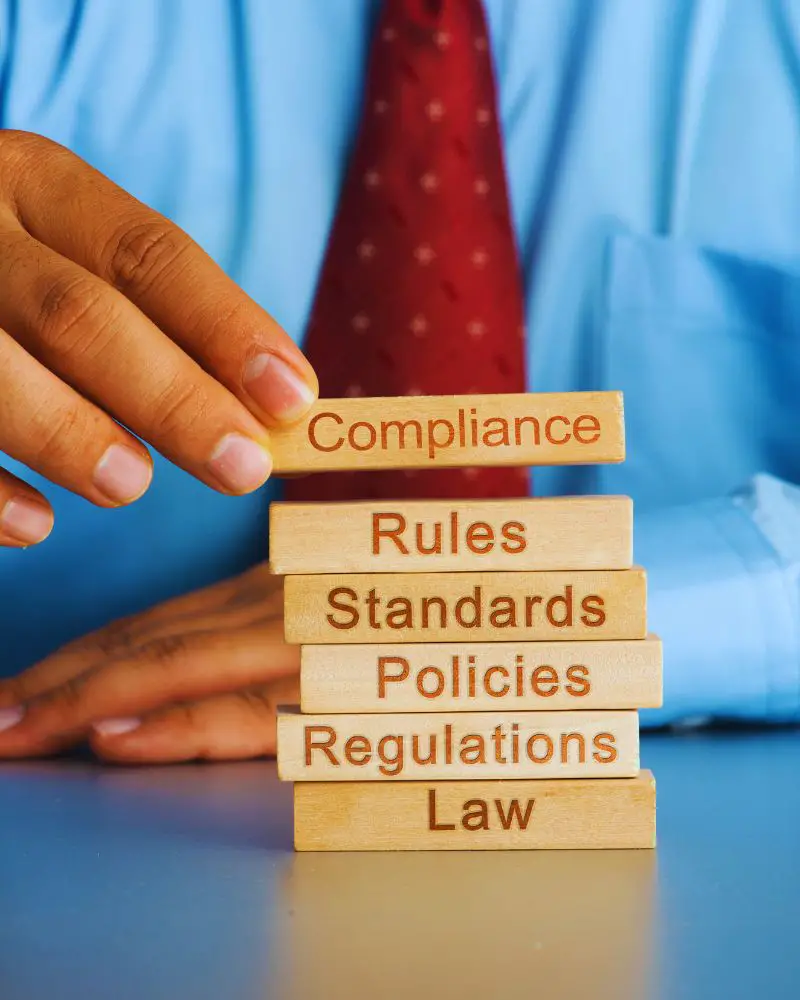
The Consequences of Non-Compliance
If you’re starting to worry that you might not be in compliance, keep reading.
I’ve included everything you need to know about selling handmade soap regulations in an easy-to-understand format that’s mostly free of jargon.
You’ll find the information further down in the post.
For now, let me give you an idea of what could happen is you don’t follow selling handmade soap regulations.
Fines and Penalities
Non-compliance with labeling, manufacturing, or ingredient safety laws may result in monetary fines, which can vary by state and the severity of the infraction.
Product Seizures
The FDA has the authority to seize products deemed misbranded or adulterated under the Federal Food, Drug, and Cosmetic Act (FD&C Act).
Injunctions or Shutdowns
Repeated or serious violations can lead to court injunctions, halting production or sales entirely until compliance is met
Negligence Claims
A lack of clear labeling, such as omitting allergen information, could be interpreted as negligence.
Compensatory and Punitive Damages
A court may require artisans to pay for medical expenses, lost wages, or emotional distress if the product caused harm.
Negative Reviews and Media Attention
News of regulatory violations can spread quickly, particularly on social media, deterring potential customers.
Loss of Market Access
Retailers or marketplaces, such as Etsy or Amazon, may remove listings that don’t meet compliance standards.
FDA or Local Inspections
Failing an inspection can lead to additional compliance costs, such as updating facilities or processes.
Increased Costs
Businesses might need to hire consultants, conduct additional product testing, or redesign packaging to meet standards.
Environmental Fines
Local environmental agencies may impose penalties for unsafe waste disposal or pollution.

Don’t Make The Same Mistakes These Artisans Did
According to Modern Soap Making and the National Law Review, there have been cases where soap and cosmetic artisans faced penalities for not following regulations.
Examples of this include:
- Marketing products that classify them as drugs rather than cosmetics. For example, claiming a soap “treats eczema” where there is no evidence to support the claim.
- Failure to report adverse effects associated with the product.
- Products sold at local markets that lack an ingredient list or fail to meet basic safety stands.
Come on! What are the chances of being fined?
Selling handmade soap regulations are an important part of doing business. It shows that you and/or your company can be trusted.
In reality, the likelihood of being fined for not following regulations when selling small volumes of handmade soaps (especially in small-town markets) could be considered low.
Am I suggesting you risk it? Absolutely not!
Your risks increase if your products are improperly labeled, claims about therapeutic or medicine benefits are made, or if consumers report issues with the product.
5 Selling Handmade Soap Regulations You Must Know
It may seem like one more thing to do in the long list of marketing artisan soaps to your local community.
The good news is that because artisan soaps are usually free from additives, chemicals, and synthetic detergents, there are fewer ingredients to include on your label.
I’ve listed 5 important regulations to follow below. However, you should grab the comprehensive list from the FDA: Frequently Asked Questions on Soap.
The following are the 5 selling handmade soap regulations you should know.
1. Labeling Requirements
When labeling artisan soaps, you must meet both legal requirements and consumer expectations.
Labels must include the street address or P.O. box of your business.
You should also include contact information such as an email or phone number. This is so that customers can reach out with specific questions about the product.
The ingredient list should use Latin names or International Nomenclature Cosmetic Ingredient (INCI) names.
This is because these are the industry standard for botanical ingredients.
Clear and accurate labeling is both a regulatory requirement and a key to building trust with your customers.
2. Claims and Marketing Language
When selling handmade soap, it’s important not to make medical claims unless your soap is officially registered as a drug.
Phrases like “chemical-free” or “cures eczema” could get you into trouble with the Federal Trade Commission (FTC) and local regulators.
Instead, focus on natural ingredients and how they benefit the skin.
You can highlight that your soap contains ingredients like olive oil, shea butter, or essential oils, but avoid promising that your soap will heal or treat specific skin conditions.
Use phrases like “moisturizing” or “gentle on skin” to describe the benefits without making unverified health claims.
It’s best to use terms that describe the quality of your ingredients.
For example, saying “crafted with natural oils” or “handmade with plant-based ingredients” is both accurate and appealing to customers who prefer more natural product
3. Ingredient Safety and Restrictions
To make sure your handmade soap complies with safety regulations, it’s important to conduct a safety assessmen to ensure your products meet guidelines for the Safety of Cosmetic Products.
Here are a few things to keep in mind:
Essential Oils
Essential oils are a popular ingredient in artisan soaps, but they need to be used with care.Eessential oils can cause allergic reactions in some people.
It’s important to test for safe usage levels to ensure the oils are safe for a wide range of skin types. Always consider possible skin sensitivities and adjust your formulas accordingly to avoid irritation.
Color Additives
When using color additives in your soaps, be aware that there are specific limits on which colors can be used.
Some colorants are restricted or not approved for use in cosmetics in certain countries.
Be sure to check the list of approved colorants for your specific market, especially if you plan to sell your soaps in different regions.
This article will explain how to read the color table with a link to take you to the information you require. Read: Reading the FDA Color Tables.
Selling to European or Canadian Markets
If you plan to sell your soap in Europe or follow Health Canada’s natural health product guidelines, you’ll need to comply with stricter rules.
Some ingredients that are permitted in the U.S. may be restricted or banned in these regions.
Additionally, both Europe and Canada have specific labeling requirements that must be met to ensure the safety of your soap products.
These include ingredient listings, warnings, and claims that can be made. Always verify that your product complies with local regulations to avoid legal issues and ensure consumer safety.
4. Local and State Regulations
Selling handmade soap regulations are important to understand, especially the local regulations that apply to your business.
Licensing requirements vary by location, but most areas will require you to obtain a business license or a tax ID number.
This helps ensure your business is operating legally and allows you to pay taxes on your sales. Be sure to check with your local government to find out exactly what is required in your area.
In some regions, cottage industry exemptions may apply.
These exemptions allow small businesses to sell certain products, like handmade soap, without having to meet the same strict regulations as larger companies.
Not all areas offer this exemption, so it’s important to check local laws to see if you qualify.
Additionally, you may need to charge sales tax on your products, depending on your location.
Be aware of any local tax rules to avoid surprises when it comes time to file taxes.
5. Manufacturing Standards
Good manufacturing practices (GMP) are essential when making handmade soap.
Keeping everything clean is the first step.
Your workspace, tools, and ingredients should all be sanitized regularly to prevent contamination.
It’s also important to track your soap batches.
This helps if any customers have an adverse reaction to your product. You can quickly identify which batch it came from and take action.
You should also be prepared for audits and inspections by authorities.
These official may visit your business to check that you’re following the rules.
To prepare, make sure your records are in order, and your manufacturing processes meet safety standards.
Also, store safety information about your products, especially new ones.
This helps show you’re complying with safety regulations and ensures your products are safe for customers.
It’s important to follow the laws and regulations when selling handmade soap.
Compliance helps protect your small business and ensures your products are safe for customers.
By following the right rules, you can avoid legal issues and keep your business running smoothly.
4. Local and State Regulations
Selling handmade soap regulations are important to understand, especially the local regulations that apply to your business.
Licensing requirements vary by location, but most areas will require you to obtain a business license or a tax ID number.
This helps ensure your business is operating legally and allows you to pay taxes on your sales. Be sure to check with your local government to find out exactly what is required in your area.
In some regions, cottage industry exemptions may apply.
These exemptions allow small businesses to sell certain products, like handmade soap, without having to meet the same strict regulations as larger companies.
Not all areas offer this exemption, so it’s important to check local laws to see if you qualify.
Additionally, you may need to charge sales tax on your products, depending on your location.
Be aware of any local tax rules to avoid surprises when it comes time to file taxes.
5. Manufacturing Standards
Good manufacturing practices (GMP) are essential when making handmade soap.
Keeping everything clean is the first step.
Your workspace, tools, and ingredients should all be sanitized regularly to prevent contamination.
It’s also important to track your soap batches.
This helps if any customers have an adverse reaction to your product. You can quickly identify which batch it came from and take action.
You should also be prepared for audits and inspections by authorities.
These official may visit your business to check that you’re following the rules.
To prepare, make sure your records are in order, and your manufacturing processes meet safety standards.
Also, store safety information about your products, especially new ones.
This helps show you’re complying with safety regulations and ensures your products are safe for customers.
Conclusion
It’s important to follow the laws and regulations when selling handmade soap.
Compliance helps protect your small business and ensures your products are safe for customers.
By following the right rules, you can avoid legal issues and keep your business running smoothly.
Consider joining workshops or following experts like Marie Gale for guidance.
Engaging with Facebook groups dedicated to artisan soaps can also be a great way to learn and stay updated.

